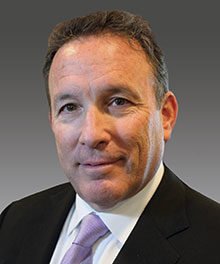Doing the Math

Unless you happen to buy lunch at Lucky Candy in the Bronx or spend a lot of time on Tik Tok, you probably don’t know Ahmad Alwan.
I’ve never met him, either, but this 20-year-old Bronx Community College student has won major points —not to mention a social media following—for a project he started while working his way through school as a cashier at his dad’s deli.
Alwan came up with a game where he asks shoppers to solve a math problem, like “What is 9×9 minus 5?” If they get the answer right*, he gives them five seconds to grab anything they want off the store shelves, for free. (He pays the tab).
He’s been getting a lot of buzz because in true GenZ spirit, he posted videos about the game on Tik Tok. The video went viral, and now he has 300,000 followers.
More important, he’s got people lining up outside the store in the cold every day to do math problems.
That really warms my heart. I’m an accountant, after all. It’s hard to get the average person fired up about doing math, and he’s pulled it off.
Math is a basic skill, right up there with knowing how to sign your name using a pen and paper or cracking open a book. (Did you know that cursive handwriting is no longer taught in grade school??!! Apparently, the three “R”s are down to two for kids born in the digital age). Too many people go through life without being able to do simple equations without a cell phone calculator.
Aside from the obvious, like being able to quickly compare prices or perform the other basic mathematical necessities of daily life, it also narrows their career options. One of the reasons there’s an ongoing talent shortage in accounting and other STEM fields is that so many people develop negative feelings about math or full-blown math phobia before they’re out of high school. That leaves a relatively small pool of students open to studying accounting. Although what we do is principally business advisory work, accounting is still, at heart, about numbers.
This brain drain frustrates me personally because I’ve always found math to be fun. It’s a foregone conclusion that, in general, math isn’t being taught in a way that engages students and helps them see its real world applications.
It’s hard for students to make the connection between their homework and the things they want to do in life, whether that’s creating a hot new app, figuring out the odds on a football game, or bargaining for their first car.
Then again, maybe we can learn something from Alwan. If he can get everyday Americans around the country lining up to solve math problems, maybe someone can turn his concept into the next Shark Tank or American Idol for math stars.
Not really related to math but not that far either, yesterday I had one of those customer service (or lack thereof) experiences I’m compelled to share.
About 9:10am, after buying Valentine’s Day cards for Tracy at CVS from the kids and me, I had to stop at the bank to get change. I wanted to change three one hundred dollar bills into 20s and 10s. No big deal, right?
So, next to the CVS is a branch of Wells Fargo Bank, a place where I DON’T have an account. I went in, and there was no other customer in the place. Since I didn’t have an account, the teller refused to accommodate my request to change my money. I then asked for the manager, who also refused my request. It was simply to change three hundreds into 10s and 20s. I was dumbfounded. Was my request really that much out of line?
A couple of years ago, when Wells was going through its big account scandal, I wrote some less than complimentary thoughts about the bank. I was quickly bombarded with emails from bankers at Wells who had done business for years with Marcum, reminding me not to judge the entire institution by the wrongs of a couple of bad eggs. The following week I wrote an apology. Not this time.
It is really aggravating that Wells, or any other bank, would refuse such a simple request. Who knows? If the service had been better, if I would have considered opening an account and giving them my business. But I guess we know the answer to that question.
I would hope this is not the policy of all banks, but it is something we can all learn from.
*76, if memory serves.
